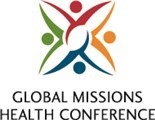
GMHC 2015
Healthy Missionary MarriagesHealthy Missionary Marriages
Healthy Missionary Marriages will be the topic. This talk will be designed to help singles who might decide to marry during their service overseas, and married couples serving overseas.









Comments